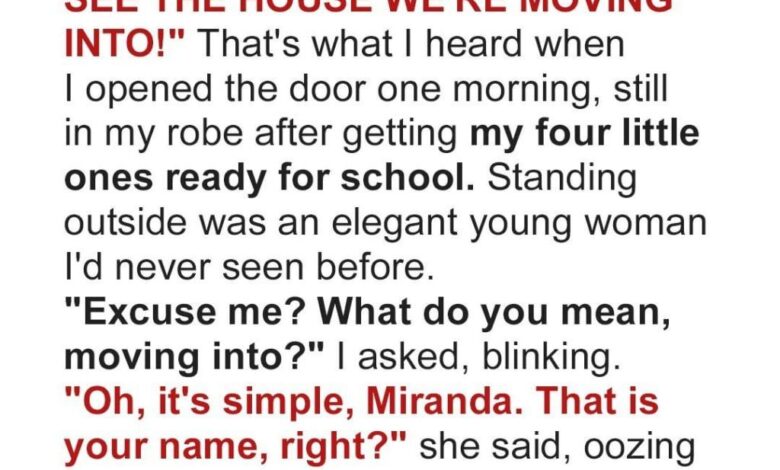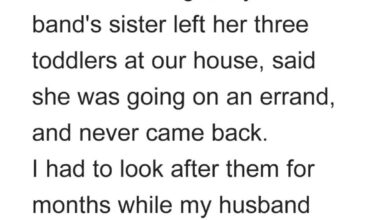My Ex-Husband’s Fiancée Tried to Evict Me and My Four Kids — So I Fought Back

When my ex-husband’s young fiancée showed up at my door, suitcase in hand, smiling as if she owned the place, I knew immediately: I wasn’t going to let her intimidate me—or my kids.
Ethan and I had divorced after ten years of marriage. He cheated—constantly. And even when he wasn’t cheating, he wasn’t really there. I still remember the night I confronted him, holding another woman’s earring I’d found in his car.
“Really, Ethan? In the family car?”
He shrugged. “Look, I’m not happy. Haven’t been for years.”
I realized then that my marriage—and his sense of responsibility—was over. I raised our four kids mostly on my own even before the divorce. Emma, Jake, and the twins had learned independence early, because their father wasn’t around.
After the divorce, I chose peace over revenge. I stayed in the house with the kids, took the car, accepted reasonable child support. That house wasn’t just walls and a roof—it was their home, their history, the place where Emma had carved her name in the doorframe, where Jake’s growth chart marked the years, and where the twins’ handprints were pressed into the back patio cement.
For two years, life was steady. I worked as a medical receptionist, the kids thrived, and slowly, we healed.
Until the morning Sarah—Ethan’s fiancée—showed up, chirping about moving into my house. She spoke as if our children didn’t exist, as if the home my kids had lived in their entire lives could be “given” to her like a gift.
I stayed calm until she mentioned her measuring tape and furniture plans. That was the last straw.
“GET OFF MY PORCH!” I screamed.
Later, Ethan brushed it off. “It’s still legally mine,” he said. “I need it back.”
I could have caved. I could have let him take the house, let him disrupt my children’s lives. But I refused. Instead, I went to court—not to fight over the house, but for justice for my kids.
I presented detailed records: every penny I’d spent on school, medical care, food, and activities; every hour I’d devoted to doctor’s appointments, school events, homework help, and bedtime stories. I showed the court what it really meant to raise four children largely alone.
The judge didn’t hesitate. Ethan’s child support payments were woefully inadequate. They were increased—tripled—to ensure my children had the care and stability they deserved.
Walking out of that courthouse, I felt something I hadn’t in years: power. Determination. Relief.
We moved temporarily into my mom’s house, squeezing into two bedrooms, sleeping on air mattresses. But within six months, I had secured a new job and saved enough to rent a beautiful three-bedroom apartment. A safe, warm home for my kids, entirely ours.
Ethan emailed months later, admitting his fiancée had only wanted his assets, not a family. He apologized, offered to transfer the house back. But I didn’t need it. We already had everything that mattered: a home filled with love, laughter, and security.
I’d fought for my children—and for myself. And for the first time in a long time, I felt proud, unstoppable, and free.




